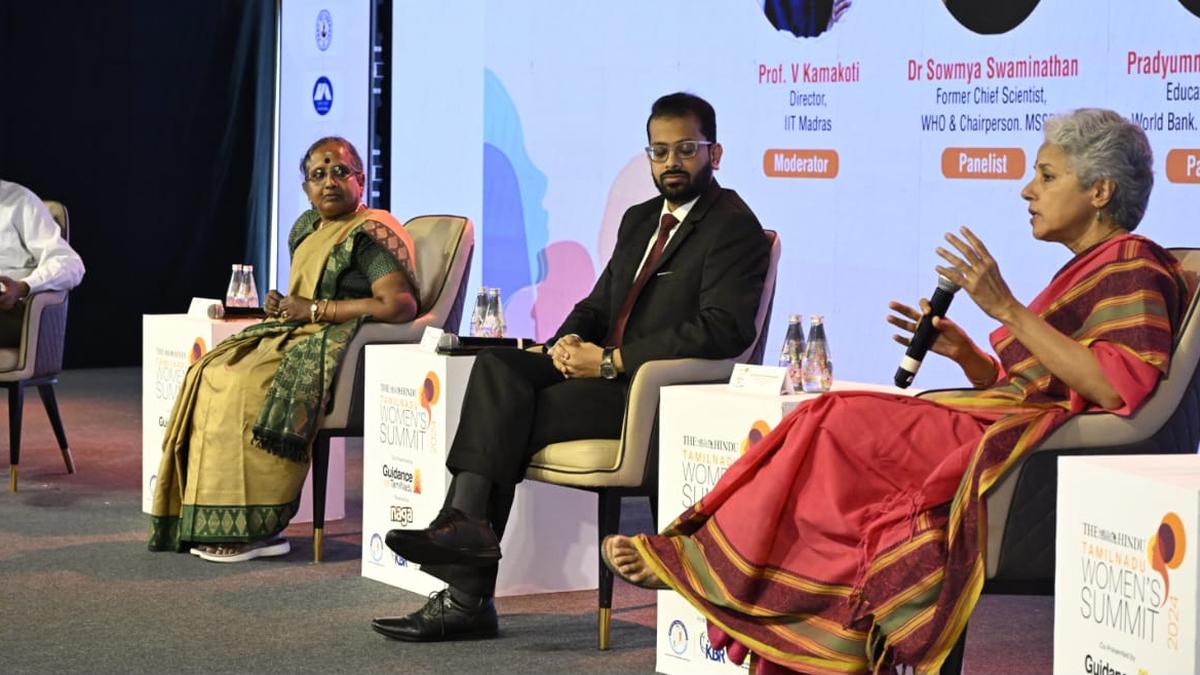
The Hindu’s Tamil Nadu Women’s Summit 2024: Conducive workplaces needed to improve gender ratio in STEM basic facilities in schools, say panelists
The Hindu
Panelists discuss fostering gender equality in STEM research and innovation, emphasizing the need for equal opportunities and support for girls.
If more women should take up science, research and innovation, then it is necessary for young girls to have equal opportunities at school and support from the family and society, said panelists at the ‘Fostering gender equality in STEM research and innovation’ session at The Hindu’s Tamil Nadu Women’s Summit 2024 held in Chennai on July 30, 2024.
Though there are more girls than boys in primary education, the ratio falls from 60% to 30% when girls reach higher education level. Inherent bias and societal stereotyping of gender roles change the way women see themselves.
Unlike large cities in rural areas, there are not many opportunities for students to experience science, said Vijayalakshmi Sankar, Vice Chairperson, Shree Renga Polyester Pvt. Ltd. She calls for more experience centres where children can learn through hands-on experience that would enable them to make better choices.
Soumya Swaminathan, Chairperson of the M.S. Swaminathan Research Foundation, dwelt on the lack of basic facilities in schools across the developing world that makes young girls nervous to go to school after they reach puberty. She recalled that the world over there is gender stereotyping of work that has been imprinted on young minds.
She echoed the sentiments of Ms. Sankar when she recalled her experience of taking children to places such as the planetarium, that excited the children.
Education specialist, The World Bank and Team lead, TN –WE SAFE Pradyumna Bhattarcharjee, cited a survey by the CSIR a couple of years ago to point out the low number of women scientists even in its own institutions. It is possible that women set standards for themselves and wonder where they fit in the workforce. Yet, there are enough studies that show that mentorship by women motivates more women to follow her lead.
Women-friendly workspaces are needed, pointed out Dr. Soumya, recalling how in some government departments creches have been created. In Scandinavian countries, parental leave is offered to both men and women workforce, indicating equal participation of men and women in child rearing.













